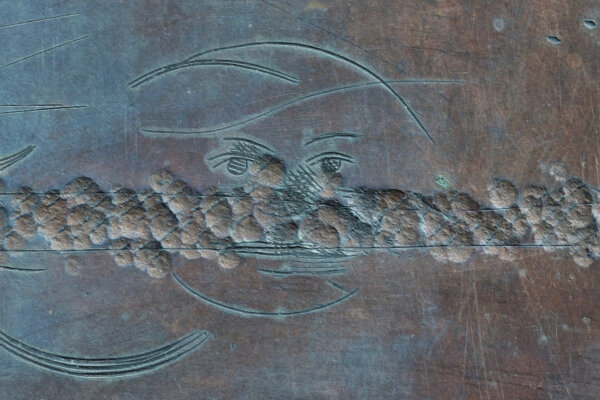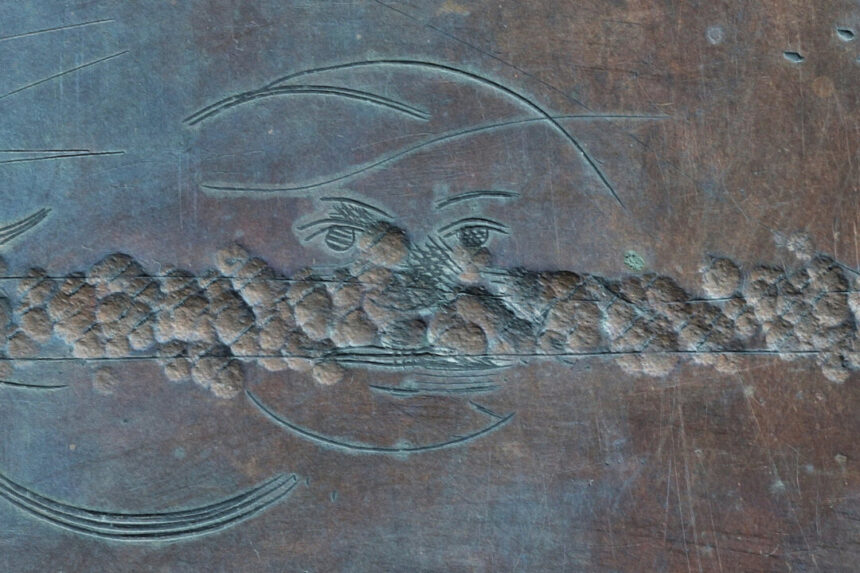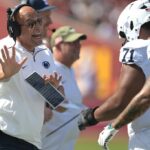
Researchers in Oxford, England, have uncovered a series of boyhood doodles engraved on copper plates by renowned English poet and painter William Blake, dating back around 250 years. The discovery was made possible by new technology capable of detecting the nearly invisible etchings.
Before becoming one of the greatest poets in the English language, Blake apprenticed under engraver James Basire, known for creating pictorial prints, a common method for printing illustrated books during that period.
Some of Blake’s most famous works include the poem “And did those feet in ancient time,” also known as “Jerusalem,” often considered England’s unofficial national anthem, and “The Tyger,” a staple in English textbooks.
Among the newly found doodles is one depicting an arrow, a motif frequently seen in Blake’s other works, and another showing a miniature face.
Mark Crosby, an expert on Blake, expressed his astonishment at the discovery, stating, “When I first saw the face, it was a staggering moment. I almost fell off my chair. I was looking back at something that had been made 250-odd years ago that hadn’t been seen before.”
Many of the engravings are invisible to the naked eye and were revealed using advanced scanning technology at the Bodleian Libraries in Oxford, where the copper plates had been donated in 1809.
The doodles appear on the back of Basire’s copper plates, a space likely used by an apprentice for practice. Despite the lack of Blake’s signature on the plates, Crosby, an associate professor of literature at Kansas State University, is confident in attributing the drawings to Blake based on the motifs present.
Crosby’s upcoming research, set to be published in two peer-reviewed journals, not only sheds light on the discovery itself but also offers insights into Blake’s time as an apprentice in Basire’s studio.
Reflecting on Blake’s doodles, Crosby remarked, “I think he’s like any teenager, who possibly gets somewhat bored easily with doing this sort of very repetitious work, so he’s doodling away.”
By Sachin Ravikumar and Marissa Davison






